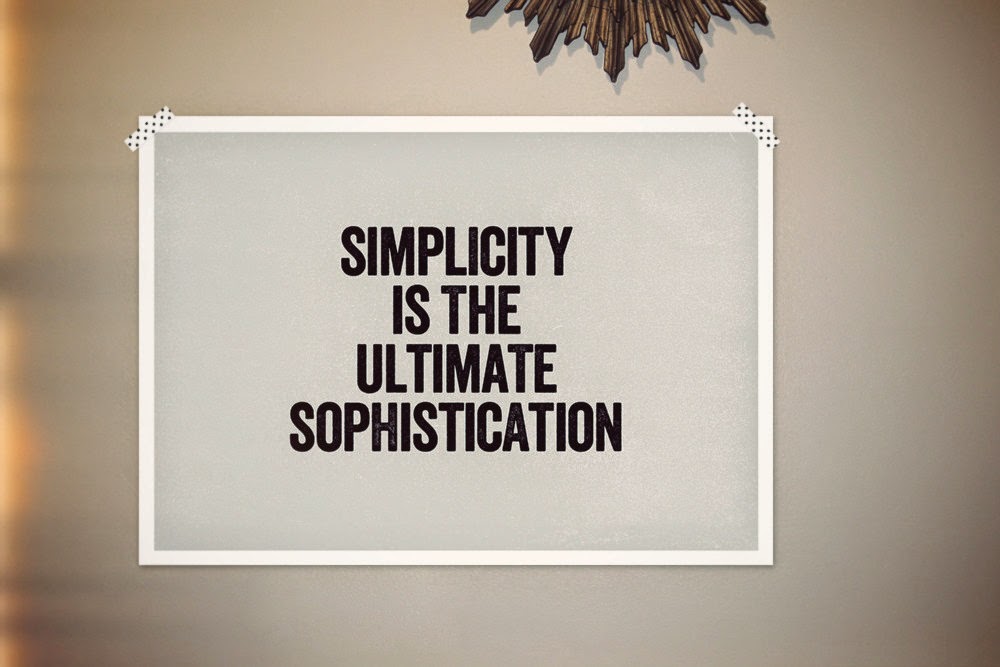I just read the article "To Be or Not to Be a Minimalist" by Joel Larsgaard.
He notes that the concept of minimalism has picked up steam lately and has become trendy. The Minimalists blog defines minimalism as a "tool used to rid yourself of life’s excess in favor of focusing on what’s important so you can find happiness, fulfillment, and freedom."
Here's an elevator pitch for minimalism: "Minimalism is a lifestyle that helps people question what things add value to their lives. By clearing the clutter from life’s path, we can all make room for the most important aspects of life: health, relationships, passion, growth, and contribution."
"There are many flavors of minimalism: a 20-year-old single guy’s minimalist lifestyle looks different from a 45-year-old mother’s minimalist life. Even though everyone embraces minimalism differently, each path leads to the same place: a life with more time, more money, and more freedom to live a more meaningful life. Getting started is as simple as asking yourself one question: How might your life be better if you owned fewer material possessions?"
Minimalism is simply getting rid of things you do not use or need, leaving an uncluttered, simple environment and an uncluttered, simple life. It’s living without an obsession with material things or an obsession with doing everything and doing too much.
Moderate minimalism seems healthy to me. The longer I live, the more I enjoy having less “stuff” and putting more of my energy towards the things that ultimately matter, like my family, my community, my church, my God, and my relationships. Although our culture has fallen headfirst over the cliff of consumerism, I believe that experiences are more important than things.
You may not be able to become a minimalism overnight. If you are in financial stress because of all the stuff you've bought, it may take time to dig yourself out of the hole. Debt has worse mental health consequences than a low income. If people in financial difficulties adopted a more minimalistic approach to life, they may find it incredibly freeing. Sit down and make some hard decisions. What can you really do without? Doing without the mental anguish of debt and over-consumption is something that can be incredibly calming in the long run.
Figure out the things that are essential for you and then “cut ruthlessly on things that don’t matter so that you can spend lavishly on the things you love most.” Make sure that your money is being used wisely in ways that affect your life in a positive manner.
Continue reading at the original source →
Show all posts from
Go to Previous
Shortcut Keys: K or P
Shortcut Keys: K or P
Go to Next
Shortcut Key: J or N
Shortcut Key: J or N
Close
Shortcut Key: Esc
Shortcut Key: Esc
Blogs about Latter-day Saint Topics
Blogs by Mormons on Other Topics
Blogs by Full-Time Mormon Missionaries
Content from Official Church Feeds
Audio and Video from
General Conferences
General Conferences




